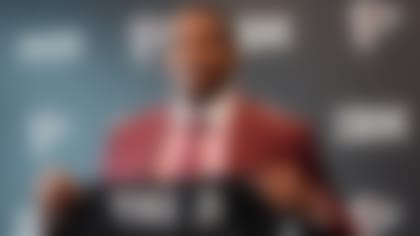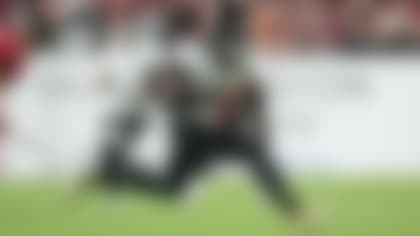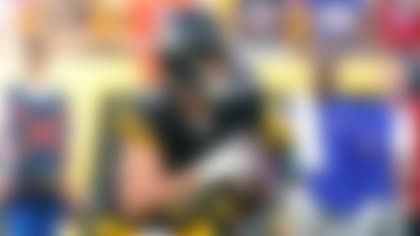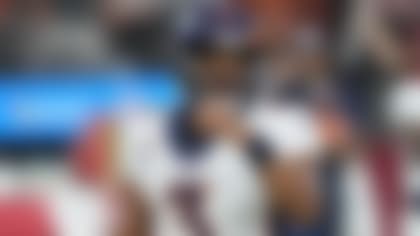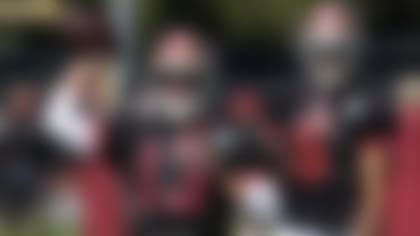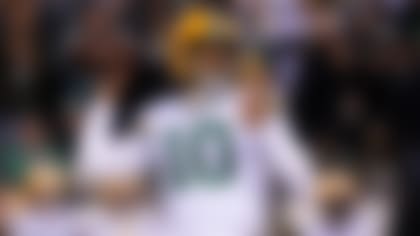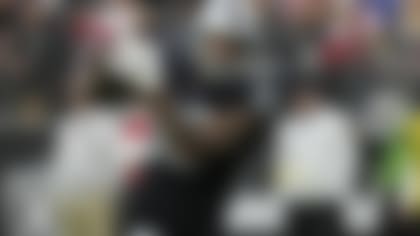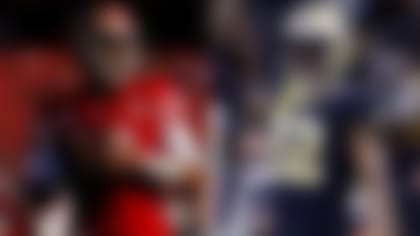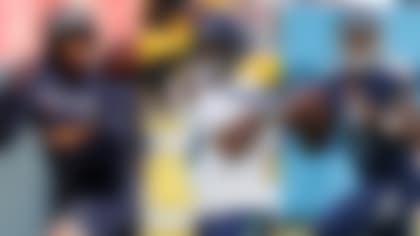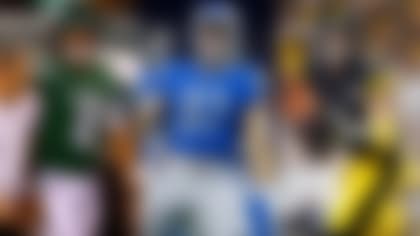MINNEAPOLIS -- Bill Belichick is fond of noting that most NFL games come down to a handful of plays. During Super Bowl LII, the Eaglesaggressively seized the moment during those plays, while the Patriots made uncharacteristic mistakes.
Here's a look at three aspects of New England's 41-33 loss in the Super Bowl that were not Patriots-like.
1) Malcolm Butler's disappearance. Just three years removed from authoring one of the great plays and underdog stories in Super Bowl history, Butler was instead the centerpiece of a great mystery. Why did the Patriots bench their starting cornerback for the entire game?
Butler led the Patriots in defensive snaps during the season. While his play was more erratic than usual, he was a solid No. 2 cornerback for the team. Butler was in the news throughout the week for arriving to the Super Bowl one day after the rest of the team, for an illness that the team said kept him in the hospital. But Butler was not listed on the injury report and returned to practice by the end of the week. The team said his benching was simply a coaches decision and Butler did play a little on special teams Sunday night.
"I ain't got nothing to say," Butler told reporters in the locker room after the game, per NFL.com's Kevin Patra.
Butler's absence in the game was felt throughout, as Eagles coaches exploited great matchups against Patriots cornerback Eric Rowe, safety Jordan Richards and fill-in CB Johnson Bademosi. Butler wouldn't have solved all the issues in New England's secondary, but his competitive instincts were sorely missed in such a trying game for the Patriots defense. Both coach Bill Belichick and defensive coordinator Matt Patricia claimed Butler just wasn't part of the game plan.
"We were just trying to run some packages we had on defense and those guys that were out there were out there for all the situations that we needed them for," Patricia said.
Bill Belichick defenses are known for bending, not breaking. This one broke. Bill Belichick defenses are known for ignoring the noise and doing their job. The Butler situation created more noise and the Patriots coaches didn't allow Butler to do his job.
"I don't know what it was. I guess I wasn't playing good or they didn't feel comfortable. I don't know. But I could have changed that game," Butler told ESPN's Mike Reiss on the way to the bus after the game.
2) Special teams snafus. No team spends more resources or takes more pride in winning the special teams battle than the Patriots. But the team's kicking game gave away four key points and the team's return unit made a crucial misstep with the game on the line.
It was clear that this was not your normal PatriotsSuper Bowl when long snapper Joe Cardona made a faulty snap inside the 10-yard line at the beginning of the second quarter. What should have been a chip-shot field goal for Patriots kicker Stephen Gostkowski wound up turning into a missed opportunity at three points.
In the same quarter, Gostkowski missed an extra point that would have cut the Eagles' lead to 15-13. Gostkowski missed only three field goals and two extra points during the season, but this was the third high-profile missed extra point in the last three seasons. (He also missed one in the 2015 AFC Championship Game and last season's Super Bowl.) In a game that featured very few defensive stops -- the Patriots never punted! -- these lost four points changed the course of the game. Compare the Patriots' kicking woes to Eagles rookie kicker Jake Elliott, who made up for his own early missed extra point with a crucial 46-yard field goal with 1:10 left. Elliott made three field goals on the day.
The final special teams snafu came when the Patriots tried a reverse on a kickoff return with just over a minute left in the game. New England wasted precious time on the clock and only returned the ball to the 9-yard line, giving Tom Brady mission impossible with only 58 seconds left and no timeouts. On a night with so little margin for error, New England's struggles on trick plays and special teams helped tip the balance in an unfamiliar way for the Patriots.
3) Struggles in two-minute situations. The Patriots are known for their excellence in situational football, especially at the end of halves. They failed in that area in Super Bowl LII.
After scoring with more than two minutes left in the first half, New England's defense gave up a touchdown drive to Philadelphia, capped by Nick Foles' fourth-down catch heard around the world. Tom Brady got the ball back with 34 seconds left, which could have been long enough to set up a field goal attempt after Brady found Phillip Dorsett for 19 yards early on the ensuing drive. But Brady made a mental error by scrambling to midfield on the successive play instead of throwing the ball away, burning too much time to finish the drive productively.
The failed sequence in the fourth quarter will stick in the memory of Patriots fans for much longer. With the entire country believing Brady was going to drive for the game-winning score, the Eagles defense finally stood up. After a day where Brady received excellent overall protection, Eagles defensive end Brandon Graham beat Patriots guard Shaq Mason for a strip-sack of Brady. Graham noted after the game that the Eagles defenders kept telling each other to keep going after Brady despite their lack of production, that they only needed one big play to turn the game around.
"I'm just so happy I was ready for that moment," Graham said.
By the time Brady got the ball back following Graham's moment, the Patriots had to travel 91 yards in less than a minute, trailing by eight points. The Patriots had no timeouts and so little time in part because they had wasted a timeout earlier in the fourth quarter when Belichick wasn't happy with how his defense looked before a key third down.
An Eagles pass rush that had been dormant all day, suddenly started hitting Brady with regularity on the final drive.
"They got a good rush. That's what they needed, somebody needed to make a play," Brady said.
New England is usually the team that makes that play. During Super Bowl LII, the Patriots made the types of uncharacteristic plays they will only look back on with regret.
Follow Gregg Rosenthal on Twitter @greggrosenthal.

